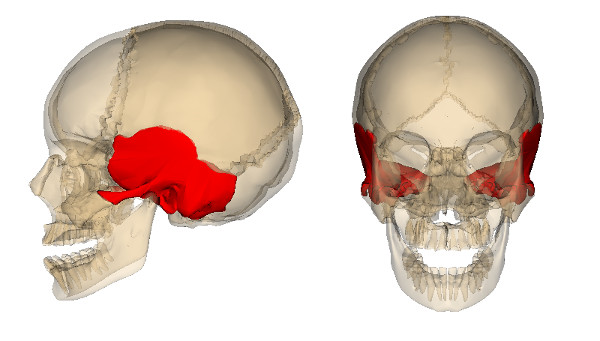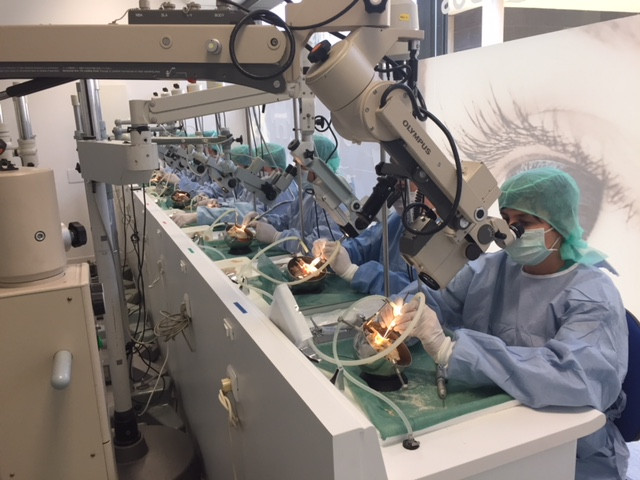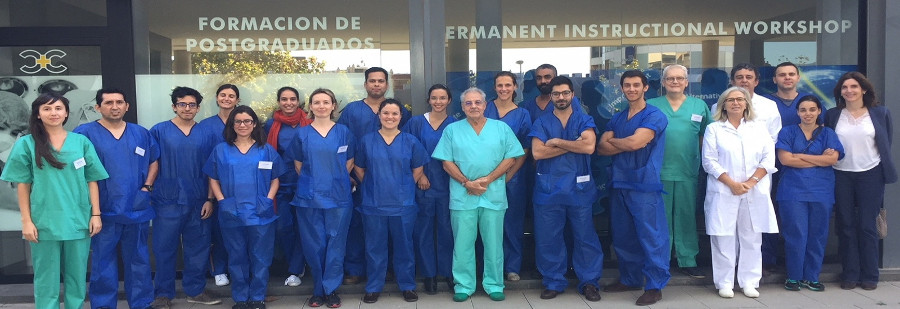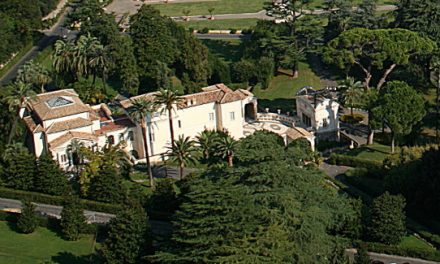These courses began in 1983 in Barcelona, under the direction of Pedro Clarós, and about 3,000 doctors have already passed through their classrooms

Temporal bone
Pedro Clarós, full academician and vice president of the Governing Board of the Royal European Academy of Doctors-Barcelona 1914 (RAED), led on November 20 and 21 in the Laboratory of Anatomy of the Clarós Clinic, post-university training courses “Temporary bone dissection and advanced surgery in otology and neurotology”. The training sessions counted on the collaboration of the RAED, and otolaryngologists from more than a dozen nationalities (Pakistan, Malta, Cape Verde, Kuwait, Poland, Romania, Bulgaria, Portugal, Switzerland, Ukraine, the Netherlands, Italy and Spain) participated. During two intense days they carried out dissection practices on cadaver bones using various surgical techniques of ear and otoneurosurgery under the direction of Clarós. Attendees had the opportunity to train in this surgical field under the strict supervision of tutors and the course director, as well as attend lectures.
 These sessions are highly appreciated for their didactic and practical nature. In addition, the laboratory is equipped with high technology, turbines, a central aspiration system, microsurgery instruments and surgical microscopes. The formative interest lies in supplying the specialists in otorhinolaryngology and neurosurgery with the means necessary to train in this specific area. “Nowadays, university training requires a useful and practical training to be up to date on new surgical techniques and modern concepts of each specialty, especially surgical ones”, says Clarós.
These sessions are highly appreciated for their didactic and practical nature. In addition, the laboratory is equipped with high technology, turbines, a central aspiration system, microsurgery instruments and surgical microscopes. The formative interest lies in supplying the specialists in otorhinolaryngology and neurosurgery with the means necessary to train in this specific area. “Nowadays, university training requires a useful and practical training to be up to date on new surgical techniques and modern concepts of each specialty, especially surgical ones”, says Clarós.
These courses began in 1983 in Barcelona, already under the direction of Pedro Clarós. During this period of time (83 courses) about 3.000 doctors have passed through its classrooms. They were designed to train surgeons in the most complex and advanced techniques and although they last only two days the schedule is very extensive, of more than 12 hours a day. They have a validation of 2,5 credits and are recognised by the Generalitat of Catalonia. The Royal Academy has been collaborating since 2016 and the European Academy of Otology and Neurotology since 2000. The next courses during 2018 will be in the months of March, May, October and November.
See the training program



